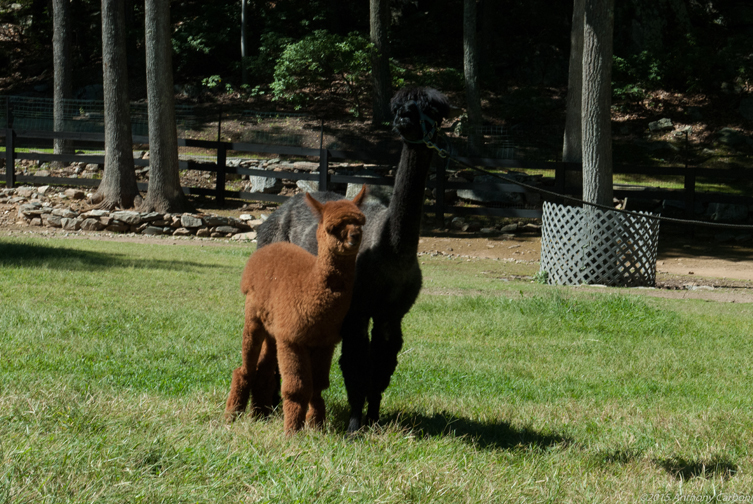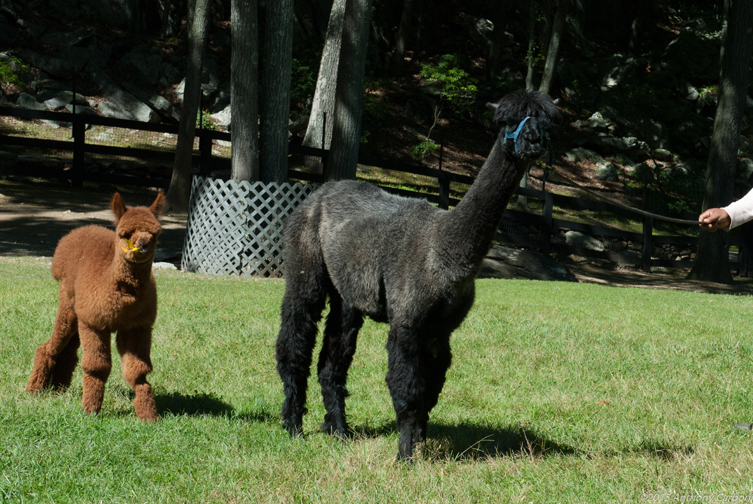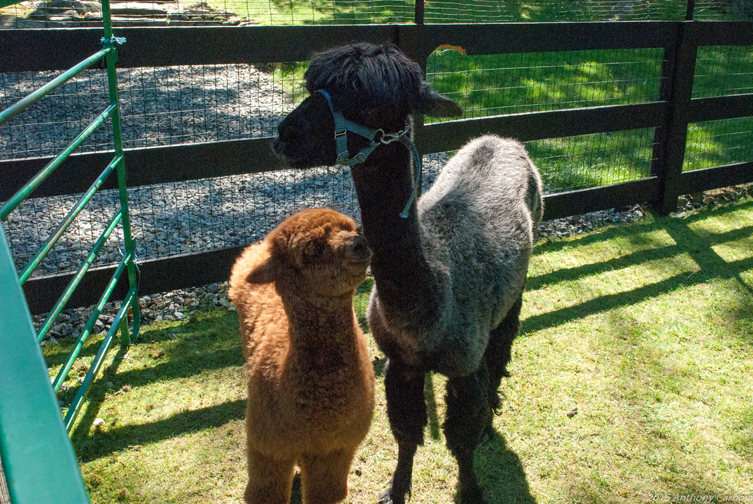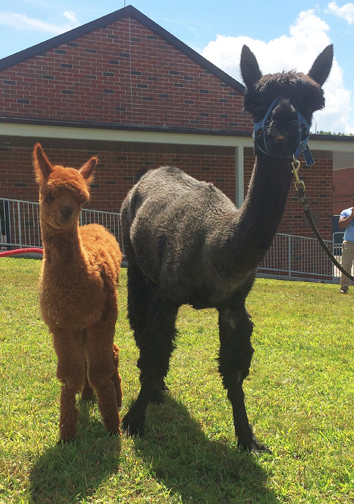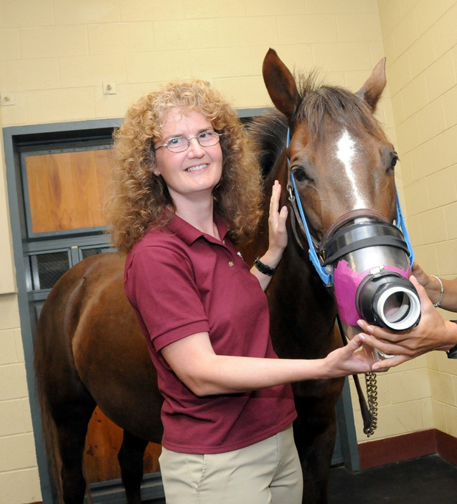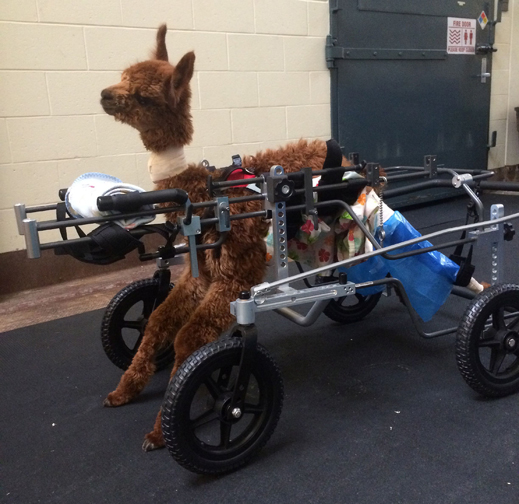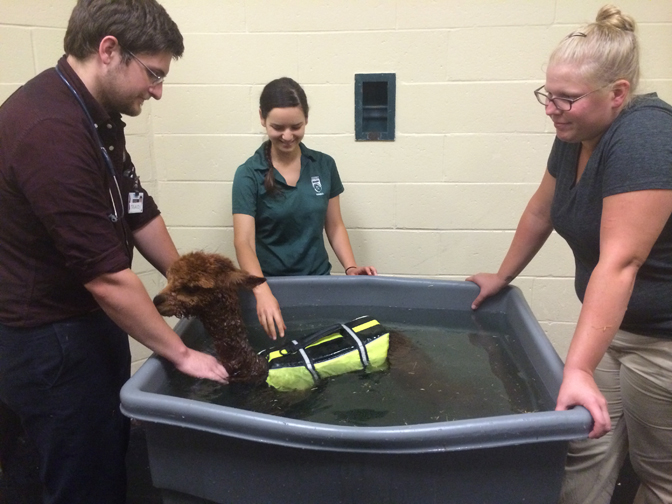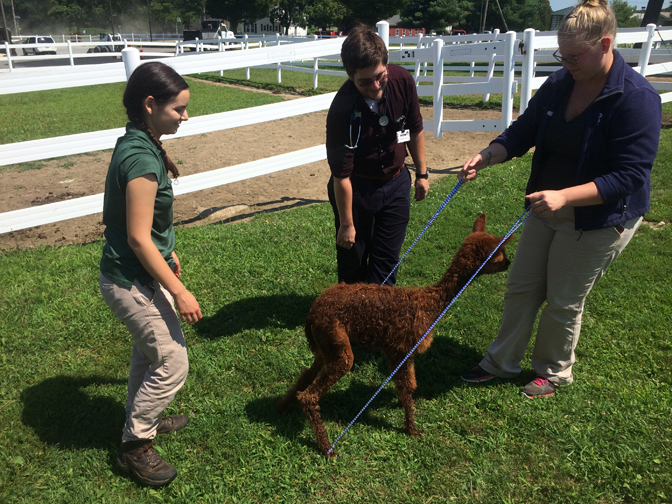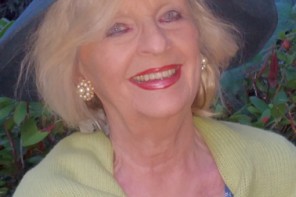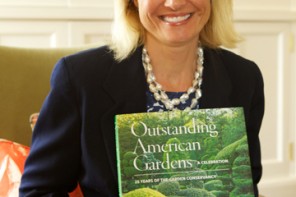Just 40 minutes west of Boston lies a specialized hospital that treats 8,000 patients annually — both domestic and wild — in a fitting farm-like setting.
The Cummings School of Veterinary Medicine at Tufts University in North Grafton is a 594-acre academic veterinary center providing round-the-clock, multispecialty care for small, large and exotic pets, horses, farm animals and sick and injured wildlife. Combining medicine with education, the school offers veterinary expertise for clients and a proactive learning approach for students.
The competitive curriculum, which accepts only 95 students per year, weaves compassion and teamwork into the details of critical care.
“The success runs in the team, not the individual,” says Daniela Bedenice, a veterinarian who is an associate professor and residency training director for the school. “You can’t do it without all our technicians, our students, our residents.”
ALLYBEE’S STORY
WAG was recently introduced to Tufts when its publisher, Dee DelBello, placed AllyBee, her newborn alpaca, in the care of Bedenice and her team for seven weeks.
“(AllyBee) came very shortly after birth for being unable to stand,” Bedenice says. “The biggest challenge in the beginning was to stabilize her enough to understand the reason why she was unable to rise.”
As Bedenice discovered, AllyBee’s kneecaps were displaced, unevenly distributing her weight on her hind legs. Since she was unable to stand, she didn’t receive the first milk from her mother and, therefore, lacked the antibodies to prevent infection. She also displayed seizure-like activity, such as bending her head backward, which made nursing difficult.
According to Bedenice, AllyBee exhibited some characteristics similar to cerebral palsy in humans. However, unlike our species, animals can progress into normal-functioning adults when given the proper care.
AllyBee first had surgery by Dr. Michael Kowaleski to adjust the placement of her kneecaps. Then she underwent rehab to learn how to walk. This included being placed in crutch-like mechanisms, in which students would help move her legs, gradually adjusting the level of difficulty to coincide with her healing and progressive independence.
“We tried swimming with her, did a little hill work with her, things like that,” Bedenice says. “A lot of times the physical therapy with a large animal is like working with a child. There’s only a limited amount of cooperation that you have, so you have to find what works best.
“The animal has to work with you, and AllyBee, for sure, had a very strong will to live,” she adds. “There was no question about it.”
Within nearly two months, AllyBee was developing on par with a normal cria (baby alpaca) as Tufts staff and students connected with her.
“We got very attached to her. There’s a very strong bond that develops between students and their patients,” Bedenice says. “She certainly won the cuteness award, I have to say,” she adds with a chuckle.
THE DOC HERSELF
Bedenice may be soft-spoken, but don’t let that fool you. She is one of four doctors that leads the internal medicine service — a division of the Hospital for Large Animals at Cummings Veterinary Center — and the only board-certified specialist in large animal emergency and critical care in New England.
And she has her very own herd of alpacas — 13 in total.
“I actually, over time, developed a program that was predominantly focused on llamas and alpacas,” she says.
Bedenice’s passion for the veterinary field began in Germany, her native country. As a child, she worked in stables and was permitted to ride the horses. In high school, “I actually spent weekends driving around with a local veterinarian to see whether this was a field that I would enjoy. This has always been my first choice as a profession, as far as I can think back.”
Earning her veterinary degree from the Free University in Berlin, she traveled to Tufts for an externship, enjoying the experience so much that she pursed post-doctoral work at the university. She enrolled in a three-year specialty-training program to become double board-certified in large, internal medicine and emergency and critical care.
Now as an associate professor in the department of clinical sciences, she participates in a number of courses, including large-animal internal medicine, toxicology and gastro-intestinal pathophysiology.
“I’ve been a full-time faculty here at Tufts,” she says. “Fifty percent of the time I work with patients and the other 50 percent of the time, I have responsibility for teaching and research.”
For which both her two- and four-legged charges are grateful.
Cummings School of Veterinary Medicine at Tufts University is at 200 Westboro Road, North Grafton, Mass. For more, visit vet.tufts.edu.
To view a video produced by Tufts of AllyBee’s recovery, visit https://www.youtube.com.

